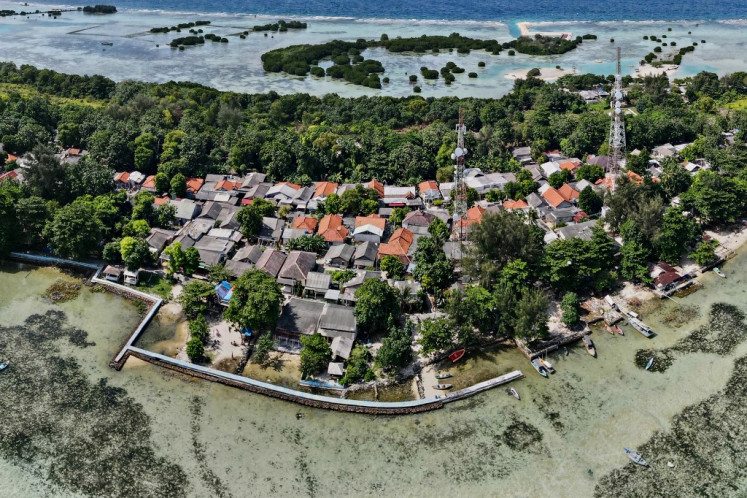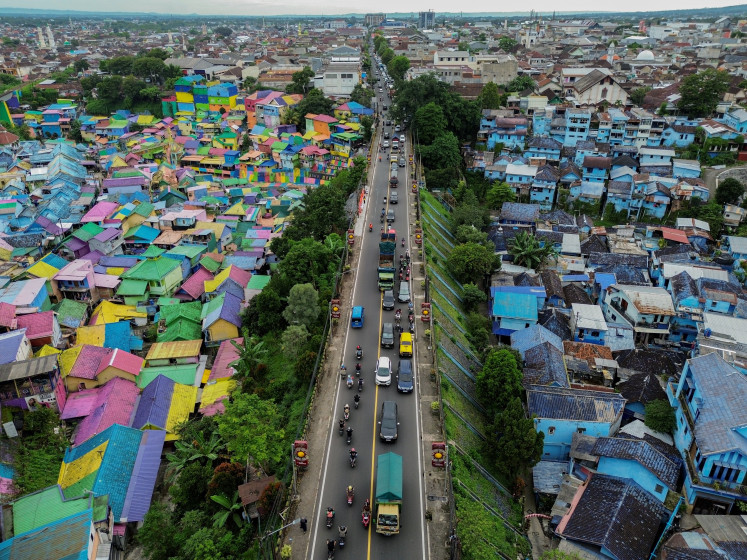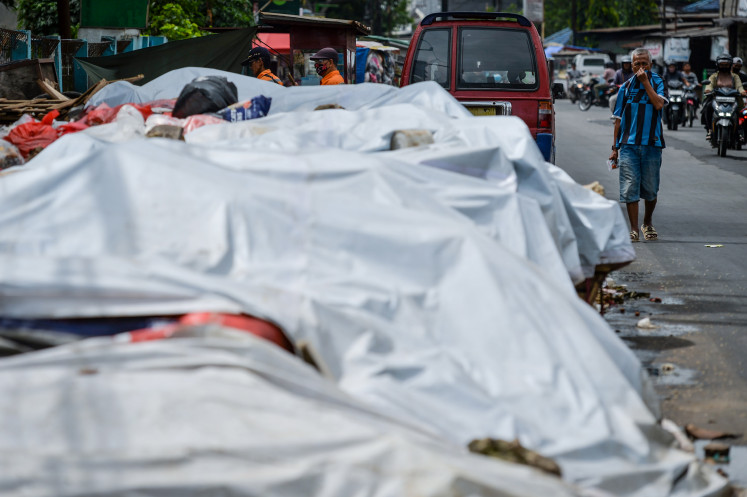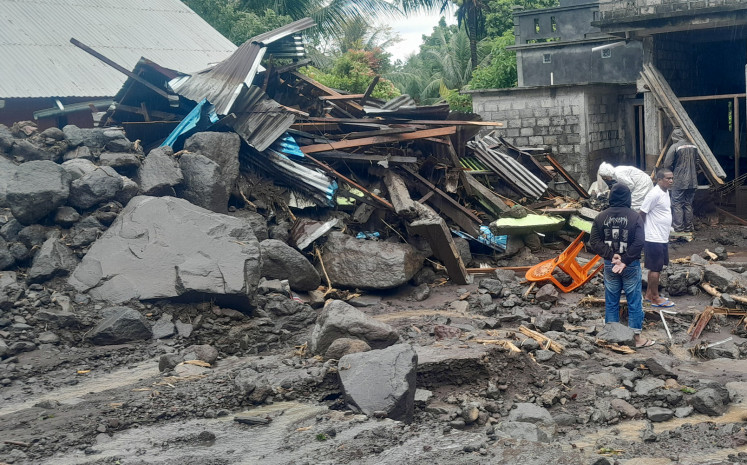Popular Reads
Top Results
Can't find what you're looking for?
View all search resultsPopular Reads
Top Results
Can't find what you're looking for?
View all search resultsBuilding a more resilient Jakarta
Resilient Jakarta’s preliminary assessment identified civil unrest, disease outbreak and flooding as the top three acute shocks.
Change text size
Gift Premium Articles
to Anyone
I
n many ways, cities are our greatest risk. The challenges presented by climate change, rapid migration, and disasters – both man-made and natural – most acutely affect cities. But cities are also our greatest opportunity. They are the places where innovation happens, where solutions that improve lives are born, where wealth generation is accelerated and where efficiency gains are most achievable.
On World Cities Day, as we celebrate the role of urbanization in society’s growth, innovation and progress, we must also recognize the threats that our cities face and the urgent need to build resilience as a guarantee against an uncertain future.
Urban resilience is the capacity of individuals, communities and cities to survive, adapt and grow as a means of countering the vulnerabilities that strain progress. These vulnerabilities – acute shocks such as natural disasters and chronic stresses such as social inequality – demand simultaneous attention and require cities to prepare for what they can predict and build strength for what they can’t. When governments take a holistic, integrated approach towards addressing these shocks and stresses, we position ourselves and our communities on an upward development trajectory for the future.
Last year, Indonesia experienced the highest number of natural disasters in over ten years, forcing urban centers to confront a new groundswell of challenges pinned against progress, such as alternating water scarcity and flooding, housing affordability and unlivable air pollution levels. As one of the most populous urban areas in the entire world, Jakarta must reconcile with these challenges while creating infrastructure that can support its dynamic population.
Jakarta recognized that the city needed to change the way it planned in order to address these shocks and stresses. Jakarta applied to join 100 Resilient Cities (100RC) a network of likeminded cities across the globe working become more resilient to the physical, social and economic challenges of the 21st century. The recently-formed Resilient Jakarta Secretariat has already made waves introducing urban resilience to the city.
Resilient Jakarta has convened a broad range of stakeholders and conducted a series of assessment exercises mapping a pathway for Jakarta’s resilience. By working with such a diverse stakeholder set, the Resilient Jakarta Secretariat is effectively opening the governance process to citizens and including the city’s many voices in setting resilience priorities.
The theme of this year’s World Cities Day is Innovative Governance, Open Cities and it is in this spirit that Resilient Jakarta is carrying out its work. Over the past year, the Resilient Jakarta Secretariat has engaged key government agencies, academics, business leaders, and community representatives in conversations about the role of resilience in urban and development. These conversations have provided a preliminary resilience assessment, capturing Jakarta’s challenges and opportunities to build resilience moving forward.
Resilient Jakarta’s preliminary assessment identified civil unrest, disease outbreak and flooding as the top three acute shocks and access to safe, quality food, access to sustainable, clean water and poverty and economic inequality as the top three chronic stresses challenging resilience in the city.
When the Resilient Jakarta Secretariat releases its preliminary resilience assessment, the next step will be to ask the city hard questions about what kind of a future it wants to build. Questions like “how can we improve the governance and management capacity of Jakarta?” and “how can Jakarta’s health and wellbeing be improved through better waste and water management?” will guide the Secretariat as it develops the city’s resilience strategy. Working within 100RC’s global network, the Jakarta Secretariat has the unique capacity to learn from, and lean on, a vanguard of member cities and partners with applied experience integrating urban resilience into practice.
Bangkok, another mega-city and one of Jakarta’s closest neighbors in the network, has already completed its resilience strategy and has been working to embed resilience into the city planning process and implement a range of projects from public transport improvements to flood management. Learning from Bangkok’s experience will be invaluable as the Resilient Jakarta Secretariat jumpstarts its work on the ground by exploring innovative, community level waste and water management solutions.
We can no longer look at the challenges facing our cities today as singular, unrelated issues. Urban resilience equips us to face the expected and unexpected challenges that threaten our present, while creating a foundation for a better future. Jakarta has taken the first steps to building a stronger, more resilient city.
The work the Secretariat is doing today to introduce innovative and collaborative governance practices will ensure that the city becomes a better place for everyone who calls it home. Not only that, Jakarta will also serve as a beacon and educator for other cities in the most rapidly urbanizing region in the world.
---------------
We are looking for information, opinions, and in-depth analysis from experts or scholars in a variety of fields. We choose articles based on facts or opinions about general news, as well as quality analysis and commentary about Indonesia or international events. Send your piece to academia@jakpost.com.










